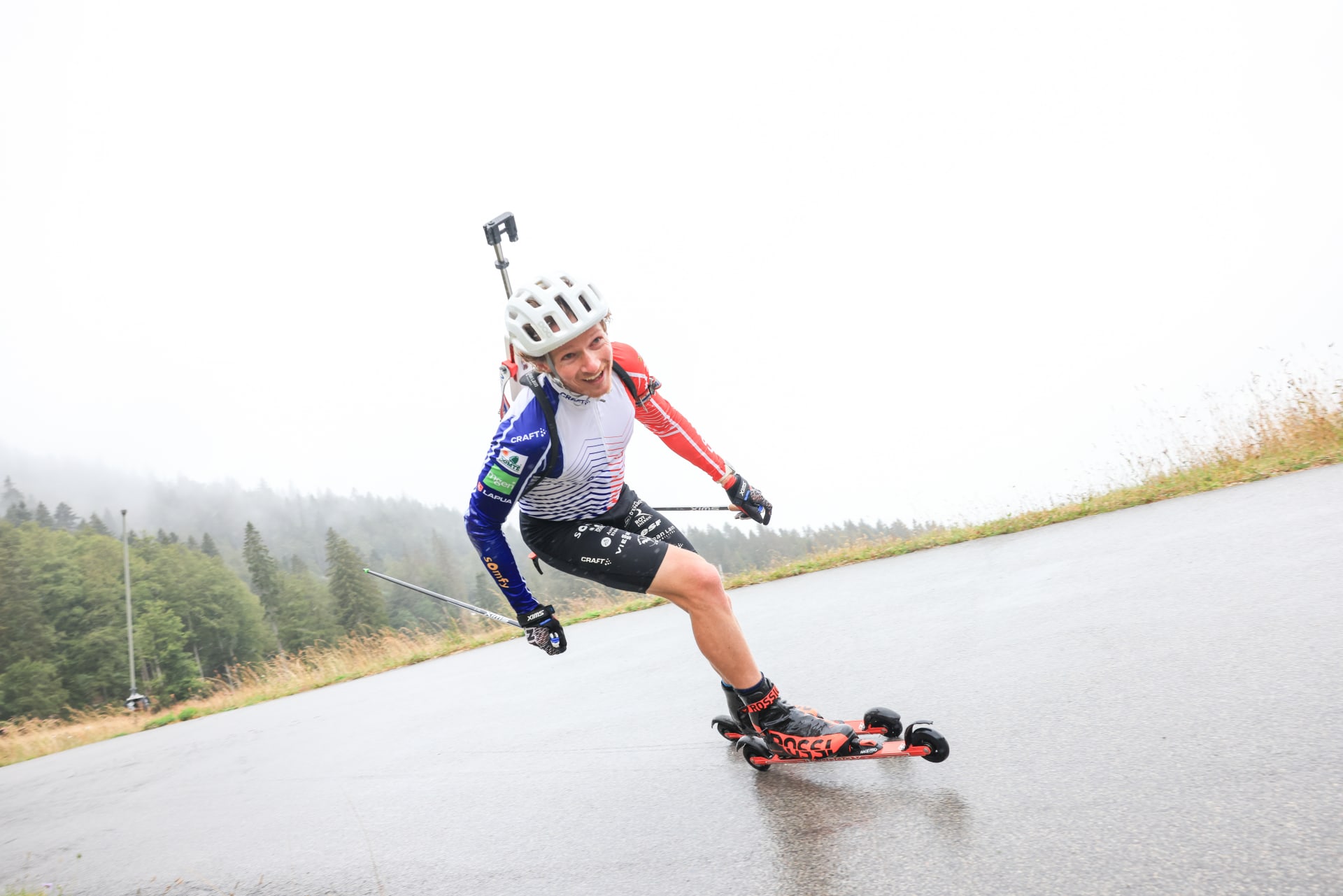With the biathlon season less than a month away, the excitement rises – but so does the pressure that comes with a competitive environment. Results matter, single shots matter and travelling for several weeks and months in a row provides its own challenge, physically and mentally. We caught up with Jacques Jefferies, IBU Athlete Ambassador for Sustainability, who has asked his peers to complete a survey on the emotional and mental well-being of athletes in a competitive environment. A total of 169 people answered the survey, the majority being professional athletes.
Biathlonworld: What was the reason for doing the survey?
Jefferies: “I did the survey because I went through tough times with my own mental health, and I
couldn’t talk to anyone about it. I wondered if other athletes felt the same way. If it happened
to me, others must be going through it too. I wanted to know how common it is for athletes to
face these challenges and if they also struggle to talk about it. Understanding these
problems is important so we can find ways to help athletes who might be going through
tough times with their mental health.”
What surprised you the most in the answers?
“I felt happy, but also a bit worried when I found out that I’m not the only one going through
tough times with mental health. More than
70% of athletes shared that they had faced mental health challenges before. This means if
you’re feeling something tough, there are others around you feeling the same way.
Another thing that made me concerned was that people (95%) felt they didn’t know a lot about
mental health. This lack of knowledge shows that we need more
education about mental health to help athletes and everyone break the stigma around the topic.”
Why do you think there is still a stigma around mental health
and talking about it?
“Traditionally, sports culture has promoted physical
toughness and resilience, fostering an environment where athletes may feel compelled to
hide their mental health struggles. The perception of weakness may cause damage to an
athlete’s image or career and often discourages the athletes from openly discussing their
mental health. Additionally, the pressure to maintain peak performance, media scrutiny, and
the mentality in some sports contribute to a reluctance to address mental health concerns
openly. Lack of education and role models further exacerbate the issue, leaving athletes
grappling with their challenges in silence.
High-profile athletes
sharing their mental health journeys serve as powerful advocates, challenging stereotypes
and encouraging others to seek help. Moreover, integrating mental health support within
sports organisations, promoting a culture that prioritises well-being, and redefining notions
of strength and resilience are crucial steps toward creating an environment where mental
health is openly acknowledged and supported.”
What do you think is the biggest challenge for biathletes in
mental health?
“The primary challenge for biathletes in terms of mental health mirrors that faced by athletes
across various disciplines, centring on the relentless pressure to deliver
performances consistently. This demanding expectation can come from multiple sources: partners, the media, fans, and occasionally, even coaches. The nature of this
pressure, persisting day in and day out can become overwhelming for many biathletes,
leading to moments of emotional strain or burnout.
Many biathletes are not solely dedicated to their athletic pursuits; they might be
students, studying outside of their training commitments. Moreover, some are parents,
navigating the delicate balance between parenting and the demanding training plans set out
by coaches. Additionally, a number of biathletes find themselves having to work to finance essential aspects of their sports career, such as training camps
and the racing season. The juggling act between athletic pursuits, personal responsibilities,
and financial considerations further intensifies the mental challenges faced by biathletes.”
What would you like to see in the future connected to mental
health and the discussion around it?
“In the future, I hope to see an increase in what I’m doing now, more people openly discussing
mental health and the challenges tied to it. Athlete testimonials play a crucial role in this;
they provide valuable insights and solutions. Hearing others talk about their struggles and
how they conquered them is incredibly beneficial. It serves as a source of inspiration and
guidance, showing that you’re not alone in facing these challenges and that there are ways to
overcome them. Additionally, I’d like to see a significant boost in education around mental health.
I also want to express my gratitude to the IBU for providing
athletes with a platform to discuss this important subject [NB: Jefferies presented his results in last month’s “Culture of Training” Webinar]. Raising awareness is crucial, and
utilising the broad reach and engagement within the biathlon family significantly contributes
to breaking the stigma and promoting the overall well-being of athletes.
Lastly, if you find
yourself grappling with mental health challenges, I encourage you to reach out to people you
trust. They are there to support you, and speaking up can truly make a positive difference in
how you feel.”
Pictures: Koksarovs/IBU, NordicFocus
